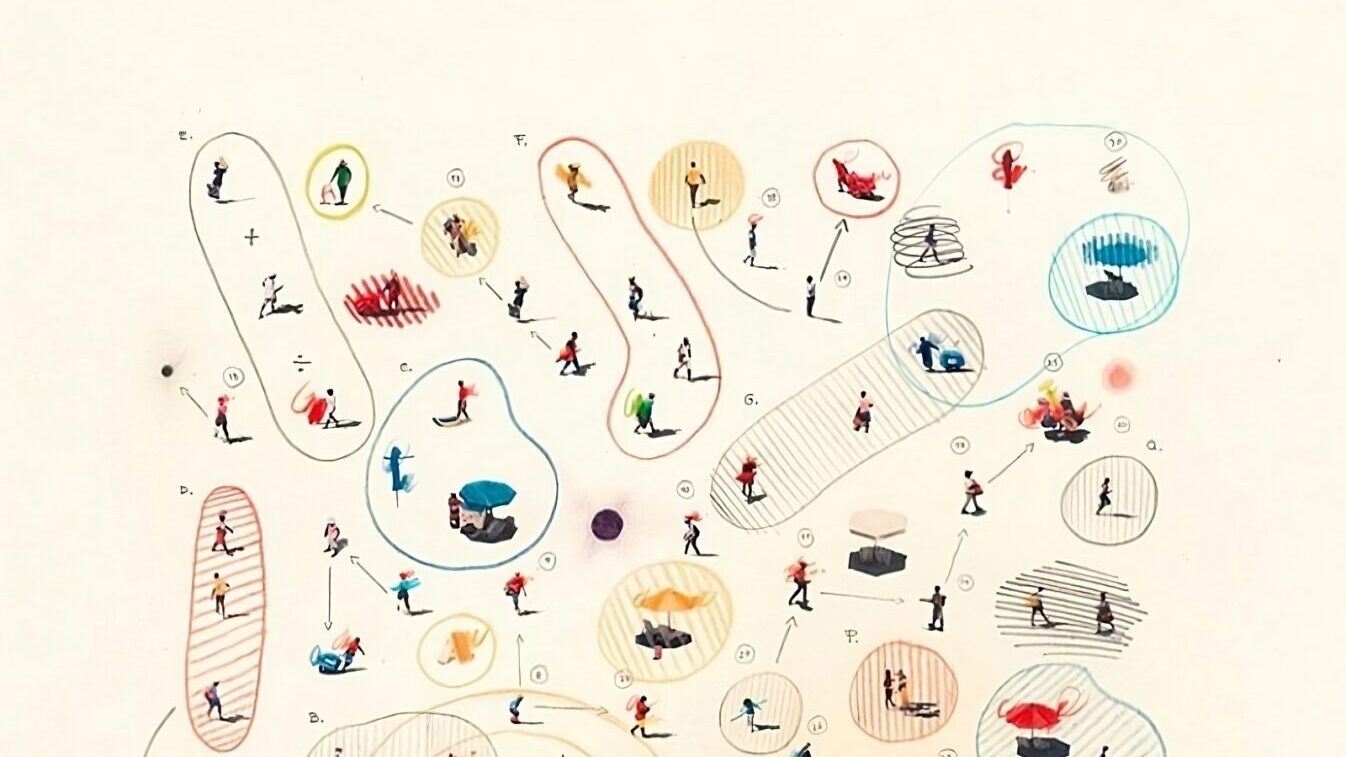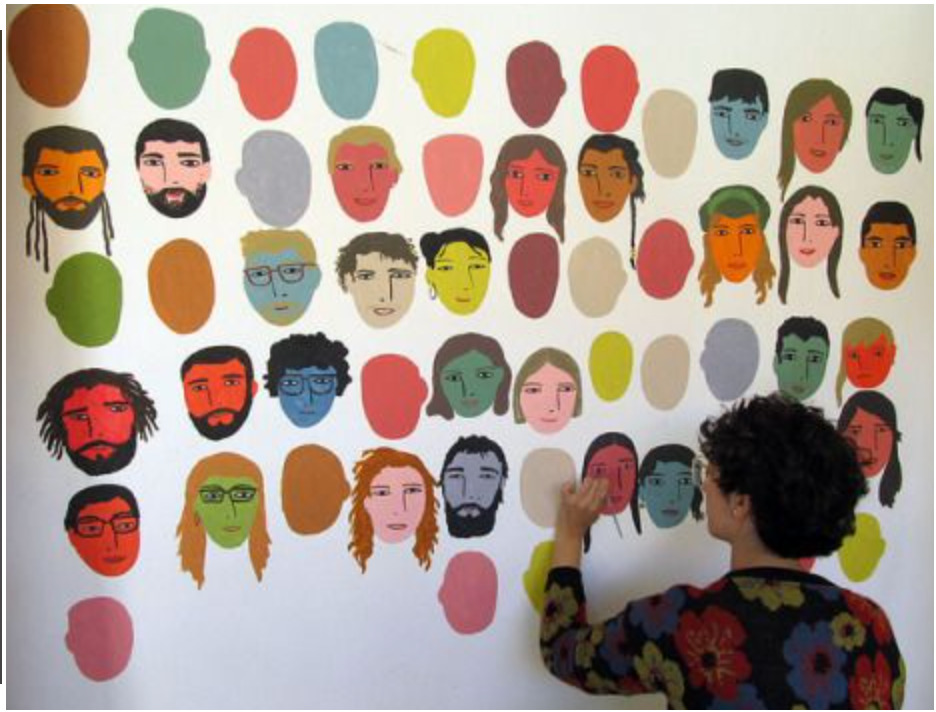Today, the ideal artist is considered a genius who, alone or in a group, creates a social structure in which other people must live.
However, it seems to me that in such a case it is not so much a question of being an artist as it is of developing political technologies that fall on the heads of others.
For it is so obvious that a society of free people is only possible when all its members have the right and opportunity to shape the social environment in which they live.
In our kingdom of crooked mirrors: hired political manipulators write the social code in which we all have to live. Much of the social code consists of magical spells assuring everyone that there is no other way but to follow the rules of the political manipulators.
Patriotism is one of those social code/magic spells. It’s like drugging people being led to execution or torture. One day I will write a brilliant children’s book about pseudo-artists who are actually evil wizards casting evil spells that ruin people’s lives.
Perhaps I should rewrite The Wizard of Oz, but instead of a lost, hapless wizard, my wizard would be a vampire mite tormenting confused Munchkins. And, of course, we must all be saved by the little girl, Buffy/Dorothy.
The main ideological opponent of the artist’s project as the creator of an open social relationship in which everyone can participate, where the difference between author and viewer, is fluid, is the Stalinist individualist project of the artist-demiurge.
Stalin, a great political manipulator and a real ghoul, used the slogan coined by Yuri Olesha, “artists are engineers of human souls,” to promote his own individual project to reorganize society, involving, among other things, the elimination of all those who disagree.
Olesha, in my opinion, referred to open-source programmers, creators of public projects, in which everyone has the right to download the code and start their own project, to have the right to leave, yet to continue on their own terms.
Speaking of “engineers of human souls,” Stalin meant assembly-line workers forced to work on his personal project of restructuring society.
Boris Groys thinks it was an art project.
https://www.versobooks.com/books/973-the-total-art-of-stalinism
Hence the architecture of Stalin’s time is also called the “Stalin Ampire” or Stalinkas.
From that moment on, artists were to stop working on improving their own “souls” or on
improving the “souls” of their comrades as a way to enhance their freedom, but on one big Stalinist project that promised to make us all happy at once.
If we imagine that the Stalinist regime existed within an open-source context, it would have been a small sect of BDSM lovers led by a mustachioed man. Nothing dangerous.
Therefore, we must fight NOT against “totalitarianism,” “Stalinism,” or mustachioed men.
We need to fight FOR societal rules that allow those who disagree to safely leave projects they are not comfortable with and create projects of their own that they feel good about.
By the way, this was the structure of pirate communities: those who disagreed with the rules, with the captain, or with the arrangement of life on THIS ship, could always leave and organize their own crew.
That was not the case with the rules and orders in the Empires, from which the Pirates fled.
The same pattern of social relations adopted by Mastodon: Don’t agree with the rules of your server,
make your own, or look for an already existing server that suits you.
This is radically different from the rules of the big (imperial) social media platforms like Twitter or Facebook.


